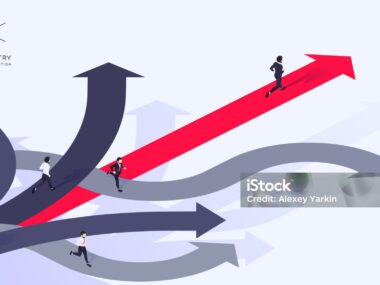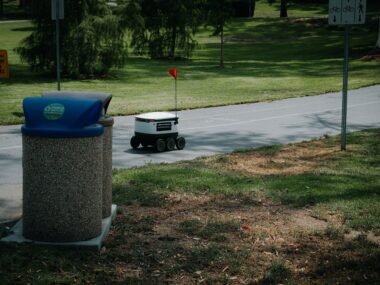Life sometimes throws unexpected challenges our way, and physical injuries can be one of the most daunting. However, in the United Kingdom, individuals with physical injuries have access to a variety of career pathways and support systems to help them navigate their professional lives successfully. In this article, we’ll explore the diverse range of opportunities available, strategies for overcoming obstacles, and resources for individuals with physical injuries to thrive in their careers.
Understanding the Challenges:
Physical injuries can significantly impact an individual’s ability to perform certain tasks or pursue specific careers. Whether it’s a result of an accident, illness, or disability, the challenges can be multifaceted. From mobility issues to chronic pain, individuals with physical injuries often face unique obstacles in the workplace. Moreover, societal perceptions and stereotypes about disabilities can further complicate their professional journey, leading to discrimination or lack of opportunities.
Despite these challenges, it’s essential to recognize the talents, skills, and potential contributions of individuals with physical injuries. With the right support and resources, they can excel in various career fields and make valuable contributions to society.
Career Pathways and Opportunities:
- Remote Work: In recent years, the rise of remote work has opened up new possibilities for individuals with physical injuries. Many companies now offer remote positions, allowing individuals to work from the comfort of their homes. This flexibility can be particularly beneficial for those with mobility issues or chronic pain, as it eliminates the need for commuting and provides a more comfortable working environment.
- Entrepreneurship: Starting a business or pursuing freelance opportunities can be an empowering option for individuals with physical injuries. By building their own businesses, they can create flexible schedules, accommodate their unique needs, and pursue their passions. With the advent of online platforms and digital marketing tools, launching a business has become more accessible than ever before.
- Vocational Rehabilitation Programs: Vocational rehabilitation programs offer specialized support and training to help individuals with disabilities or injuries prepare for and find employment. These programs may include job coaching, skills training, assistive technology, and job placement assistance. By participating in these programs, individuals can gain the necessary skills and confidence to re-enter the workforce successfully.
- Flexible Work Arrangements: Many employers in the UK offer flexible work arrangements, such as part-time schedules, job sharing, or flexible hours. These arrangements can accommodate the needs of individuals with physical injuries, allowing them to balance work with medical appointments or rehabilitation activities. Additionally, flexible work arrangements promote a healthier work-life balance, which is essential for overall well-being.
- Disability-Friendly Employers: Some companies in the UK prioritize diversity and inclusion initiatives, including hiring individuals with disabilities or injuries. These disability-friendly employers may offer accessible workplaces, reasonable accommodations, and supportive policies to ensure that all employees can thrive. By seeking out these employers, individuals with physical injuries can find welcoming and inclusive work environments.
Overcoming Obstacles:
While pursuing a career with a physical injury may come with its challenges, there are several strategies individuals can employ to overcome obstacles and achieve success:
- Self-Advocacy: It’s crucial for individuals with physical injuries to advocate for themselves in the workplace. This may involve requesting reasonable accommodations, communicating openly with supervisors about their needs, and asserting their rights under disability discrimination laws.
- Networking: Building a strong professional network can open doors to new opportunities and provide valuable support and guidance. Networking events, industry conferences, and online communities can connect individuals with like-minded professionals and potential mentors who can offer advice and assistance.
- Continuous Learning: Investing in ongoing education and skill development can enhance career prospects and adaptability in the ever-evolving job market. Whether through formal education programs, online courses, or professional certifications, individuals can stay competitive and expand their career opportunities.
- Emotional Support: Coping with a physical injury can take a toll on mental health and emotional well-being. Seeking support from friends, family members, or support groups can provide encouragement, empathy, and practical advice for navigating the challenges of living and working with a physical injury.
- Resilience: Resilience is the ability to bounce back from setbacks and adversity. Cultivating resilience can help individuals with physical injuries overcome obstacles, stay motivated, and persevere in their career pursuits. By focusing on their strengths, setting realistic goals, and maintaining a positive outlook, they can overcome challenges and achieve their professional aspirations.
Resources and Support Services:
The UK offers a range of resources and support services for individuals with physical injuries seeking to pursue their career goals:
- Access to Work: Access to Work is a government-funded program that provides financial support and practical assistance to individuals with disabilities or health conditions in the workplace. This may include funding for assistive technology, adaptations to the work environment, or support worker services.
- Disability Rights UK: Disability Rights UK is a national organization that provides information, advice, and advocacy services for individuals with disabilities. Their website offers resources on employment rights, reasonable adjustments, and disability-related issues in the workplace.
- Jobcentre Plus: Jobcentre Plus is a government agency that offers a range of employment services, including job search assistance, skills training, and disability employment support. They can provide information on available job opportunities, apprenticeships, and vocational training programs.
- Disabled Entrepreneurs Network: The Disabled Entrepreneurs Network is a community of disabled business owners and entrepreneurs in the UK. They offer networking opportunities, business support services, and resources for individuals with disabilities looking to start or grow their own businesses.
Conclusion:
Despite the challenges posed by physical injuries, individuals in the UK have access to a variety of career pathways, support services, and resources to help them achieve their professional goals. Whether through remote work, entrepreneurship, vocational rehabilitation programs, or disability-friendly employers, there are numerous opportunities for individuals with physical injuries to build successful and fulfilling careers. By advocating for themselves, networking, investing in continuous learning, and seeking support when needed, individuals can overcome obstacles, thrive in the workplace, and make valuable contributions to society. With resilience, determination, and support, the possibilities are limitless for individuals with physical injuries in the UK.






